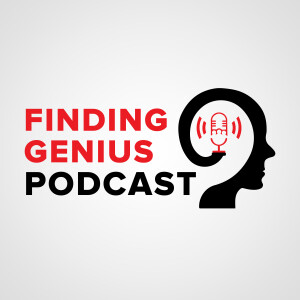
The Mosaic of Life: Virus-Host Cell Interaction and Evolution with James A. Shapiro
 2020-11-09
2020-11-09
A winner of an episode, this is the last in a series of interviews for Richard's upcoming Understanding Viruses book. Professor James A. Shapiro treats listeners to his thoughts on virus behaviors and characteristics gleaned from researching virus-host relationships and virus-cell interactions.
Listen and learn
- How virus evolution over time is really a story of the weaving of life systems pulling from all directions,
- What are surprising characteristics of viruses such as primordial vector activity, how frequently viruses lend advantages to their hosts, and other significant virus evolution impact factors, and
- How to consider if viruses are living or nonliving and why Professor Shapiro pushes for a more non reductionist view on the origin and evolution of viruses .
James Shapiro is a professor in the Department of Biochemistry and Molecular Biology at the University of Chicago. In addition to numerous publications, he's a part of the website The Third Way of Evolution, which considers evolution in the era of genomics and epigenomics.
As Richard holds this final interview to investigate how viruses persist, James Shapiro offers his own fascinating answers to questions such as are viruses alive, do they participate in quorum-sensing, and why so many differing incubation periods. For example, not only are endogenous retroviruses responsible for mammal placenta formation, these retroviral proteins are unique for each order of mammal. This diverges from the classic view of evolution that starts with a characteristic branching out into other organisms. It's as if "the placenta was invented over and over again," he adds.
As he addresses the huge variety in viral behavior, he says that many factors determine this variety—viruses can recombine with each other, for example, and produce recombinant viruses. The holobiont model exemplifies this: a large organism like a human isn't just human cells but also microbial cells living on and in us. We can think of viruses in our genome as holobiont elements: we should take a systemic view of entity development, with mosaics and amalgams determining multiple aspects of life. He adds, "we can't reduce what happens in life to some simple formula that is good for every from of life, because variety is an inherent aspect of the living world." Listen in for more rich conversation about the stuff of life.
For more about James A. Shapiro, see his website: shapiro.bsd.uchicago.edu.
Available on Apple Podcasts: apple.co/2Os0myK
More Episodes
Create your
podcast in
minutes
- Full-featured podcast site
- Unlimited storage and bandwidth
- Comprehensive podcast stats
- Distribute to Apple Podcasts, Spotify, and more
- Make money with your podcast
It is Free
- Privacy Policy
- Cookie Policy
- Terms of Use
- Consent Preferences
- Copyright © 2015-2024 Podbean.com






